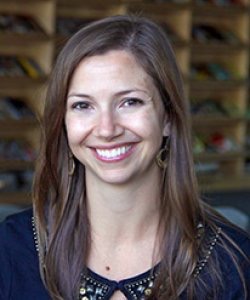First position: Your feet behind your mother’s waist, dangling. Music is playing. Your body rests in her arms, your head on her shoulder, your eyes closed. You sway and spin, breathing in and out of gentle pirouettes, dreaming toward the eventual dip into deeper sleep, adagio, adagio, where you remain elevated, where your ankles have wings.
Second position: Your toes tipped forward, your foot arched, the heel your round root. Miss Nena – Nena of the dark bun and soft camisole and foreign voice – is singing out words. And plié, darlings. Tendu. You watch the way her feet move, with a slight point, even while walking. And you think there is nothing so lovely as a curve. You are five. You wear your lavender camisole straight into bed. You dream of circles. You dream of Nena. You keep your shoulders low, your arms water, your wrists and fingers as light as wind, and when at the barre or on the floor or during a recital, you are your truest you, the you of your earliest dreams, the dream itself. And after, Nena whispers in your ear, speaks to your parents, just as others speak to your parents, and you close your eyes and know when you open them exactly what you will see.
Third position: Your feet in tap shoes, which are too heavy, too clunky, and noisy. It is the only class, your mother says, pleading, of this small gymnasium with wrestling mats in the corner and an instructor who smacks her gum. A new town. It was this or gymnastics. You watch yourself in the mirror, all angles and joints, tap, tap, loud faces, stomp, stomp, and feel the impossibility. On the drive back to the new house, you sob, shaking. For a while, there are hour-long drives to bigger cities. But then, they stop. You stop. You join volleyball. Join theater. Start kissing. By the time you learn to drive yourself, the music stomping from your speakers is of the kind you couldn’t pirouette to if you tried.
Fourth position: Your toes stretching inside new pink dance slippers, split-soled, the single-straps tight against the top of your feet. It is eight in the morning, and everyone is yawning except you. So you pretend. This is just supposed to be a class about credit fulfillment. But when Brené – Brené of the cropped hair and wool leg warmers and fine eyelines – begins the barre, you cannot help the way your shoulders fall back, the way your thighs zip shut, the soft lift of your chin. The movement of her eyebrows when she walks past you is subtle, but it’s enough. At night you go to bars with your friends and sometimes with, but often without alcohol, you climb on top of the tables and counters and dance in the semi-dark, fusing yourself to the music, allegro, allegro, until sweat drips down your neck, until you are curve and line and joints and skin, until you are lost in something like a dream you once dreamt, a depth you once knew as simply as the hollow of your palm. Brené insists you take Ballet II. You do. She applauds and commends. But then the class concludes. You return to your apartment slowly, in your tennis shoes.
Fifth position: One foot, bare and cool, flat against the bathroom tile, the other extending six-inches behind it, pointed. You are washing your face. You always do that, your husband says from the bed, observing you, that little foot move. You hadn’t noticed. Had you? A moment later, water still rushing from the faucet, you tip your chest and raise your leg behind your torso, your arms and hands and fingers reaching skyward in two perfect curves. Arabesque, you say to the mirror. And for a moment it is all again in front of you: chassé and stage and circle and grace. But it is late. So you lower your arms, place both feet on the floor. Turn off the water, the light – the image receding in the mirror like a dream. Emily Brisse has her MFA from Vermont College of Fine Arts. Her work has appeared or is forthcoming in publications including Armchair/Shotgun, Brain,Child, and The Writer’s Chronicle. She teaches English in Minneapolis.
Emily Brisse has her MFA from Vermont College of Fine Arts. Her work has appeared or is forthcoming in publications including Armchair/Shotgun, Brain,Child, and The Writer’s Chronicle. She teaches English in Minneapolis.
